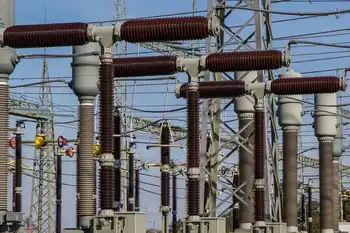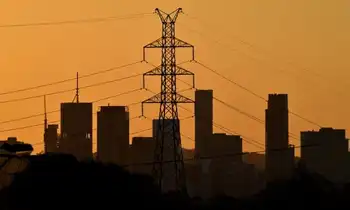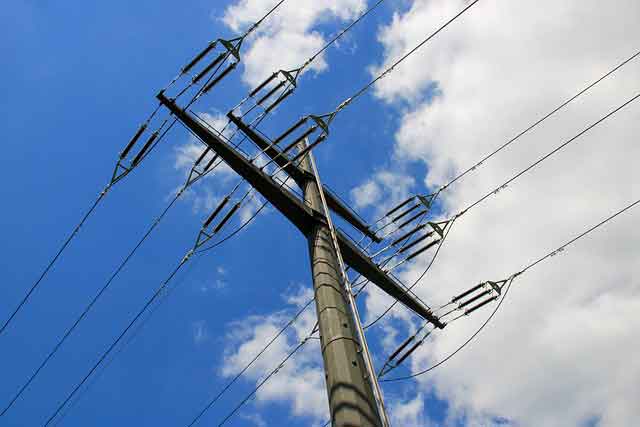Cool Ontario summer cools nuclear debate
By Ottawa Citizen
Protective Relay Training - Basic
Our customized live online or in‑person group training can be delivered to your staff at your location.

- Live Online
- 12 hours Instructor-led
- Group Training Available
That, at least, was Premier Dalton McGuinty's explanation for his government's recent decision not to proceed with two new reactors for Ontario's Darlington facility. They were expected to cost $6 billion; the final tally from Atomic Energy of Canada Limited, the winning bidder, was rumoured to be closer to $26 billion.
Shortly after, Bruce Power, the private company that operates two nuclear facilities for the McGuinty government, announced that it was pulling the plug on new installations at Nanticoke on Lake Erie and Port Elgin on Lake Huron. It has decided to refurbish existing reactors rather than buy new ones.
Again, the concern was economic. Incredibly — given the brownouts of recent memory and apocalyptic talk of future energy shortages — Ontario is enjoying an electricity surplus. The recession, and cool weather this summer, have diminished demand and new gas-fired stations and wind farms have increased supply — but the trend predates this year.
Since 2006, power use has fallen in Ontario, with another four-per-cent decline predicted this year and surpluses predicted until 2015. In light of this reality, Bruce Power's decision makes perfect business sense.
A related problem for nuclear-power advocates is waning political and public support for AECL, flagship of Canada's state-supported nuclear industry. After its costly failures at Chalk River, the ongoing isotope crisis, and its difficulty finding buyers abroad for its advanced CANDU, the Harper government is contemplating breaking up AECL and selling off any marketable assets.
If Ontario decides not to buy an AECL reactor, the crown corporation's prospects in other countries — and Canada's foothold in the global industry — would be further imperiled. Aware of this, McGuinty is pressing Ottawa to subsidize AECL's bid, in effect, asking Canadian taxpayers to pay for Ontario's nuclear future. It doesn't seem likely, given Harper's disdain for an agency regarded in Tory circles as "a sinkhole."
Uncertainty over AECL's future could also threaten development of a proposed second reactor at New Brunswick's Point Lepreau, the province's energy minister, Jack Keir, said recently.
Elsewhere, while European governments move to embrace nuclear power and memories of Three Mile Island and Chernobyl fade, the nuclear revival is also running into practical roadblocks. Finland's attempt to create a new reactor is three years behind schedule and 50 per cent over budget. Plans to build two reactors in Texas have been postponed. An accident at a German reactor days has revived apprehensions.
But the immediate brake on nuclear expansion is the recession, which has also stalled oil sands development and other environmentally damaging activities. It is expected to be temporary; the industry still has ambitious post-recession plans, including new reactors in Alberta and Saskatchewan, and many political allies. To succeed, however, it will have to come up with the low-cost designs it has long promised.
Meanwhile, there is a window opening for renewables and less controversial alternatives — especially if some of the millions invested in nuclear power were to be re-directed to green options, energy efficiency and conservation. It will take 10 years to build a new reactor (if one is ever approved) and the aging Pickering plant is supposed to reach the end of its useful life by 2014. That means one of two things: a sudden and serious shortage of electricity in coming years, or a concerted effort to find alternatives to expensive nuclear power.
The strongest argument in favour of continued use of nuclear power has always been that it supplies 50 per cent of Ontario's electricity — wind farms, solar, gas-fired electricity plants and other alternatives can't begin to fill that gap. Add to that McGuinty's promise to phase out polluting coal-fired electricity generation by 2014, which puts further strain on supply.
But Amir Shalaby, vice-president of Ontario Power Authority, a provincial oversight agency, doesn't sound pessimistic. In a recent interview, he said the province can order more renewables, import hydro power from Quebec, and find other ways of filling the void left as aging reactors begin to shut down.
Years of fitful efforts at promoting conservation and efficiency might also be paying off — finally. Another stopgap could be running existing nuclear facilities only in high-demand periods in summer, thereby extending their lives. (Although the older the technology, the greater the risk of breakdown.)
While nuclear power still figures prominently in Ontario's plans, the 2007 panic over energy supply appears to have subsided, creating breathing room for provincial energy authorities and opportunities for green alternatives. Emissions-free but still problematic nuclear power will play a role in future supply, but with luck, a diminishing one.











